Depression is often hard to spot. It can mask itself as anger or anxiety. The fatigue from depression can also disguise itself as stress or feeling sick. According to the National Alliance for Mental Illness (NAMI), about 17.7 million people (7.2%) in the U.S. will have a major depressive episode in their lifetime. Suicide, which includes depression as a risk factor, is the second cause of death in people ages 10-34, making treating depression and decreasing thoughts of suicide critical.
Treating depression can be more challenging than spotting it. Fortunately, depression can be treated, even in the most severe cases. Depending on the severity of their illness, treatment may consist of therapy, medication, or both. Sometimes, lifestyle changes like stress reduction and exercise can improve signs of depression.
Because depression often causes feelings of isolation and loneliness, emotional support animals are an excellent way to alleviate symptoms. Pets have been shown to have positive mental health effects, and research suggests that having an animal can improve moods.
An emotional support dog can really turn around your life if you are suffering from depression. Not only can an emotional support dog make you feel better just through its companionship, but it can also help you maintain a healthy schedule and encourage you to exercise outdoors with your pup.
In this article, we’ll look at some of the best dog breeds for helping people with depression.
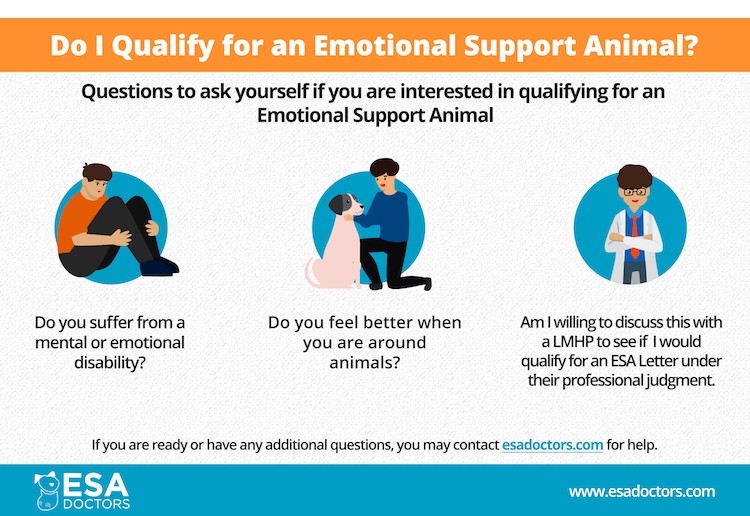
Five Best Dog Breeds for Depression
Any type of dog can make for a wonderful emotional support dog. There is no “best breed” for dogs when it comes to depression. What matters more is the unique bond you form with your dog. A mixed-breed dog from your local shelter can truly change the course of your life. As long as you have an ESA letter, any dog breed can qualify as a legal emotional support animal.
In selecting a dog, lifestyle factors are also important to consider. If you live in a small studio apartment in the city, a small lap dog might be more appropriate than a larger dog that needs to take long hikes and loves running outdoors.
Here are some of the most popular dog breeds when it comes to helping with depression.
1. Cavalier King Charles Spaniel
It could be the large, dark eyes that gaze lovingly at their owners. Or the fluffy ears that shake as they run to your feet. Their small size also adds to their obvious adorable good looks. Aside from their appearance, Cavalier King Charles Spaniels are also very attached to their owners. They are eager to please, learn quickly, and enjoy cuddles. These dogs don’t mind sharing their personal space with their family members and are very patient with other dogs—all perfect traits for an ESA.
Although their cuteness is magnetic, it comes at a price. Grooming for these dogs can be costly because their long hair requires regular trims and cleaning. However, the cost of grooming might be a small price to pay for unconditional love.

2. Vizsla
Although not as fluffy or traditionally cute as the Cavalier King Charles Spaniels, a Vizsla is the opposite as far as grooming goes. A Vizsla is famous for being almost feline-like in its grooming habits, keeping themselves clean, and rarely requiring grooming. They’re also very attached to their owners and dislike being alone, making them ideal candidates for people with depression. Vizslas are quick-thinking and smart, learning tricks with ease and rarely requiring discipline.
Because Vizslas require constant companionship, they’re not ideal for owners who are often away from home or unable to provide consistent attention.

Do you need a legitimate ESA now?
3. Shiba Inu
If a Vizsla’s constant need for affection isn’t your thing, a Shiba Inu might be what you need. The Shiba Inu have a streak of independence and are able to amuse themselves easily. Their hijinks can lead to hilarious and amusing quirks, making their family members laugh. The silliness helps add brightness to the lives of people with depression. When it comes to their owners, they’re loyal and easygoing. A Shiba Inu brings color and zany fun to any environment they’re a part of.
For owners who want an extremely obedient dog, a Shiba Inu may not be the best choice. That streak of independence can be fun for some owners, and frustrating for others! It’s also important to note that while your emotional support dog doesn’t need formal training, you’ll want to be able to share with your landlord that your dog is well-behaved and not disruptive to others.
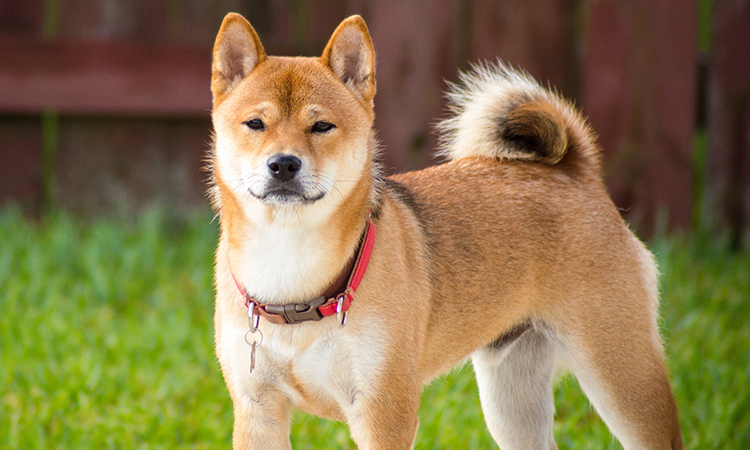
4. Golden Retriever
A Golden Retriever is the wholesome kid-next-door that everyone loves. They’d be a straight-A student and the star athlete, perhaps also the class clowns. Goldens can bring sunshine into the room and, at the same time, remain obedient. Famously easy to train, Golden’s are enthusiastic learners. So much so that Golden’s often receive training as search and rescue and service dogs.
Because they’re very skilled at hunting, they make perfect companions for games and outdoor activities. Lastly, their love and devotion to their owners make them an ideal ESA for people with depression.
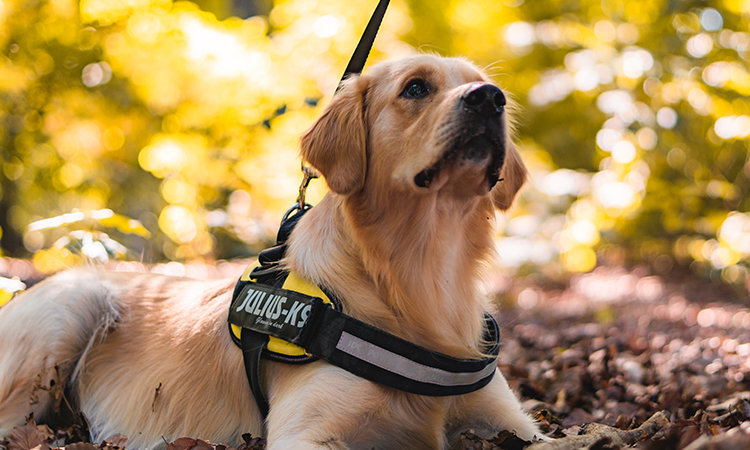
5. Labrador Retriever
The American Kennel Club ranks Labradors as the most popular dog breed in the U.S. There are many reasons for that. Labrador retrievers are smart, sweet, and well-mannered. They’re also athletic and energetic, encouraging their owners to go outside and enjoy the world. Friendly and gentle, they adore children and enjoy the attention. They’re also protective and loyal, as well as quick to train.
Like Goldens, Labradors often serve as rescue and service dogs because of their ability to take direction and their eagerness to please. For someone with depression, a Labrador Retriever can be the gentle giant they need as an ESA.
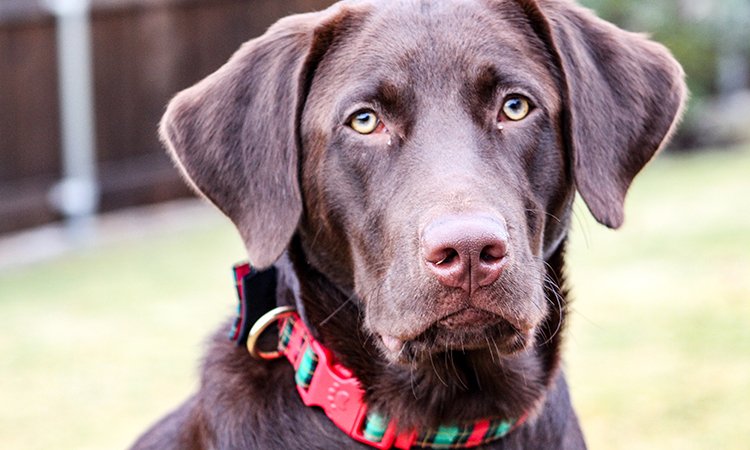
The Right ESA Dog Breed for You
When it comes to choosing the right dog as an emotional support animal for depression, be honest about your needs and how the dog will fit into your life. Finding a dog that fits your lifestyle, personality, and emotional needs may take some time. However, once you find the right dog, it will be much more rewarding and meaningful.
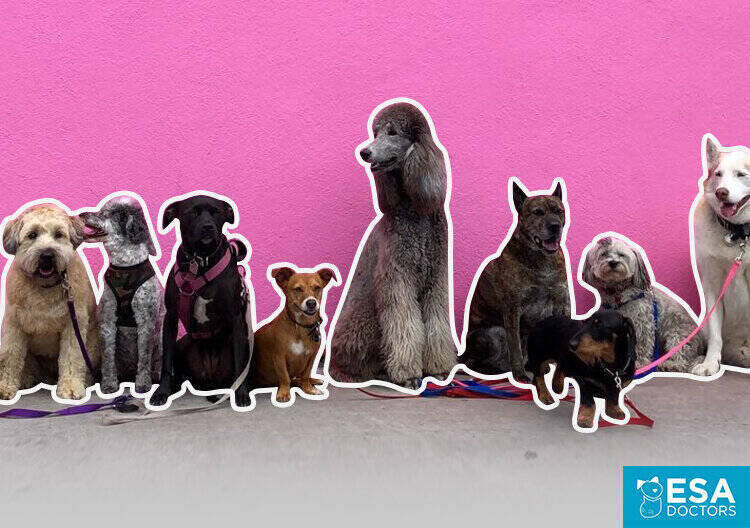




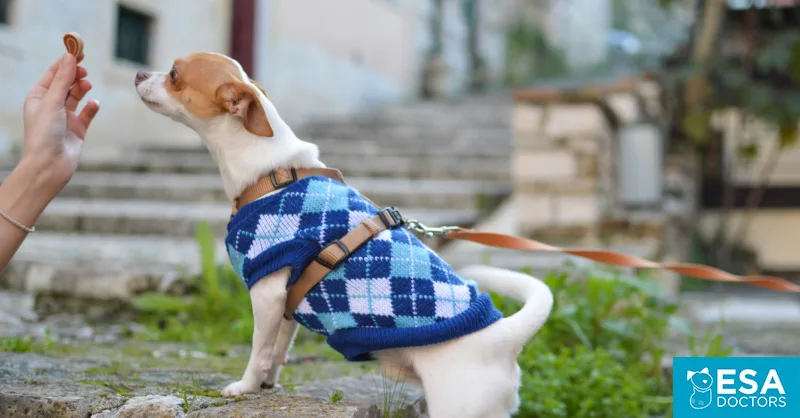
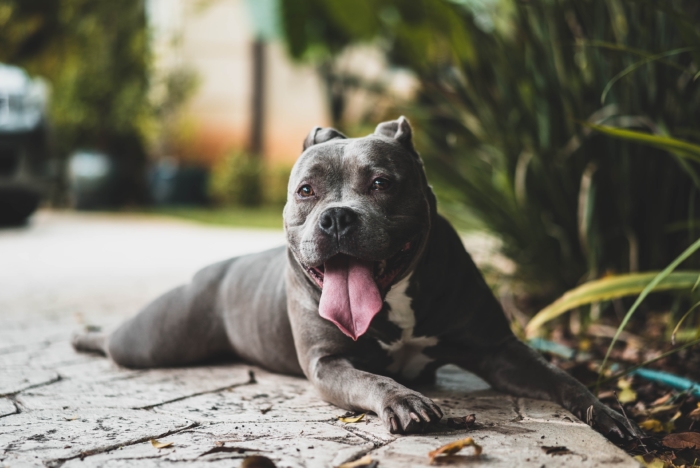

I really thank all of you for sharing especially about the pit, I have an American Bully and he is so loving and loyal, thinking really hard about doing this
I concur I have a tri pit and she is adorable. We cannot go anywhere without her getting showered with attention and she eats it up. She is very playful and there isn’t a mean streak in her body, you would not believe it unless you see it for yourself. She’s my emotional support not much of a protector, because she runs before I do, but I wouldn’t trade her for the world.
If the tenant cannot provide proof in the form of an emotional support animal letter, then the landlord has every right to deny them housing. Unfortunately, some people do try to fake emotional support animal letters so it’s important for tenants to have their letters signed and dated on the official office letterhead of their mental health practitioner.
Dogs are wonderful support animals. No matter the breed they give unconditional love and are great cuddle buddies and fantastic listeners And they dont gossip.
I have a border collie that is my best friend. They are very loyal dogs. Untrained she can detect when a seizure is about to come on
I have a Maltese she is so loving, helping, great listener, she always makes me smile, very playful, and a wonderful family member, but no one hears much about Maltese’s they make great emotional support dogs. They are so much more then they get credit for. They are great with kids and other animals, and they know no stranger.
NEVR 4get 2 Rescue ur dogs eithr!! My ESA is a rescue & hes my Best Frend!!!! Im SOOOO happy I adoptd him😍 He NEVR leaves my side & if I leave him…he whines & cries😥 His name is Oreo…hes Black & White…hes a Jack Russel Cocker Spaniel Chihuahua mix…I dont no wat I wuld do w out him!!!! So PLZ also look in2 Rescue Pups!!!!😇😁👍
I have a great Dane for my service dog and breed them for others they are great dogs for that
There are no small breeds mentioned. You have not suggested possible and better aligned pets for us. Seniors like myself cannot handle larger dogs.
June, we will be coming out with an article for small breed dogs. Thank you for your comment!
Staghounds are wonderful therapy dogs too. Very loving and loyal and want to please you.
I have a multipoo that I have had for 9 years and she is my best friend
I have a German Shepherd he’s my best friend and confidant he eats when I eat he sleeps when I sleep if I go somewhere he goes also